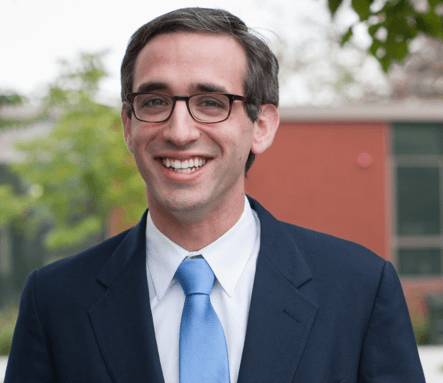Earlier this year, Illinois state Rep. Will Guzzardi proposed an aggressive, anti-price-gouging bill that banned manufacturers from excessively hiking the costs of generic drugs sold to Illinois residents for his first foray into prescription cost control legislation. Guzzardi’s bill was one of a dozen anti-price gouging measures introduced in state legislature this year.
The bill easily passed the Illinois House, but it stalled in the Senate after a federal appeals court ruled that Maryland’s first-in-the-nation, anti-price-gouging law was unconstitutional. Like many state lawmakers working to craft innovative solutions to rein in drug costs, Guzzardi, a two-term legislator representing the Northwest Side of Chicago, is already prepping for Round 2 in the next legislative season.
 Illinois’ anti-price-gouging bill:
Illinois’ anti-price-gouging bill:* Prohibited a pharmaceutical manufacturer or wholesaler from increasing the wholesale cost of an off-patent or generic drug 30% in one year, 50% over three years, or 75% over five years;
* Allowed the state’s Medicaid director, the director of Central Management Services, and others to notify the attorney general of excessive price hikes imposed on Illinois consumers; and
* Authorized the attorney general to request information from drug manufacturers and institute proceedings for violations.
Why did you choose anti-price-gouging legislation, which is a political heavyweight compared to transparency or regulating pharmacy benefit managers, for your first foray into curbing drug costs?
We had heard about Maryland’s law, which implemented anti-price-gouging safeguards, and we were interested in it. We also thought it had newsworthiness and timeliness to it because Martin Shkreli [former Turing Pharmaceutical CEO who raised one generic drug’s price 5,000 percent after buying the company] had been in the news as well as the price-gouging on EpiPens. We had also been talking about the need to keep drugs such as Narcan, used to counter-act opioid overdoses, affordable in the future. So, we reached out to Maryland state officials to explore their anti-price-gouging bill.
How was your bill different than Maryland’s?
I believe Maryland’s bill applied to drugs sold in Maryland. We added language that specified that our bill would only apply to drugs sold to Illinois residents. The distinction comes in the language in House Amendment 1, which inserts the words “that is ultimately sold in Illinois” into the definition of what drugs are covered. This language creates a nexus in Illinois, which we believe gives us a stronger case for the legality of regulation.
Who opposed the legislation?
Only the generic drug manufacturer’s association opposed it. They made red herring arguments, that the problem was not generics but brand-name drugs and that the state would lose jobs. While we’re happy to see lower-priced generics, there are still egregious cases where generic prices are hiked without manufacturers adding any value in terms of product development. Ultimately, it became a philosophical question for Republicans in the House and Senate, who viewed the legislation as Soviet-style price controls. They argued that a free market naturally guarantees the cheapest prices. But with generics, more than 50 percent of them have fewer than three manufacturers and a large number of generic manufacturers are monopolies or operate in a quasi-monopoly environments, which allows a huge opportunity for price increases and taking advantage of consumers. And, government regulates prices in all types of monopolies, including public utilities. It’s not unheard of for a state government to step in and prevent monopolies from extorting people.
Two judges ruled that Maryland could not regulate the prices charged by drug manufacturers because the sale to wholesalers occurred outside Maryland. As a result, they ruled that the anti-price-gouging law violated the Constitution’s Dormant Commerce Clause, which prevents states from interfering with interstate commerce.
A third judge dissented, arguing that Maryland’s law only addressed prices paid by Maryland consumers. He argued that manufacturers could simply price their products that were sold in Maryland to adhere to the state’s anti-price-gouging law.
Democrats were the majority party in both the House and Senate, why didn’t it pass?
It passed 65-38, mostly along party lines, in the House. Then we had a couple of things happen. The generic manufacturers’ association lobbyist had much more access and influence in the state senate, where there are fewer members. Specifically, he had very close relationships with several senators.
And then, there was the unfortunate timing of the Maryland court decision in April, just when the Senate was going to vote on it. Senators worried they would be voting on something that would end up in court.
The federal court panel in the Maryland decision ruled against the bill in ways that are indefensible. They said the Dormant Commerce Clause prevented regulation of upstream (out-of-state) transactions, but there are all kinds of regulations made at a state level that affect products sold by out-of-state manufacturers, such as state food labeling requirements or product safety and quality requirements. A lot of things we think of as normal state legislation would be considered unconstitutional under that view.
What are your plans for drug cost control legislation in the next session? [Guzzardi, a Democrat, faces no Republican opponent in the November election.]
I and my colleagues are looking into this now. This was my first year looking into prescription costs and I’ve discovered an appetite for it. I am learning that there is plenty of room for states to engage in this area, such as an insulin-for-all programs, or pharmacy benefit manager oversight laws or drug cost transparency mandates. We also need to see if it’s better to introduce several bills at once that tackle drug costs using different strategies or whether it’s better to focus on one approach. We’re also waiting to see what the federal court decides in the Maryland case, to see if we revive the anti-price-gouging bill.
I also intend to work on building a nonpartisan coalition to support this, involving AARP and other organizations. I truly believe there is a lot of pent-up demand for this.
Is outrage over drug prices gaining enough traction in Illinois that the legislation could succeed next session?
My district is a very diverse community. It’s roughly half white and half Latino, and it’s largely working-class. I think it’s hard for people to break out who the individual players are in the drug supply chain and what their responsibilities are, but they do know that drug prices are so high that they’re splitting pills, not filling prescriptions, and skipping doses. They may not know whom to blame, but they know they’re being taken advantage of.



